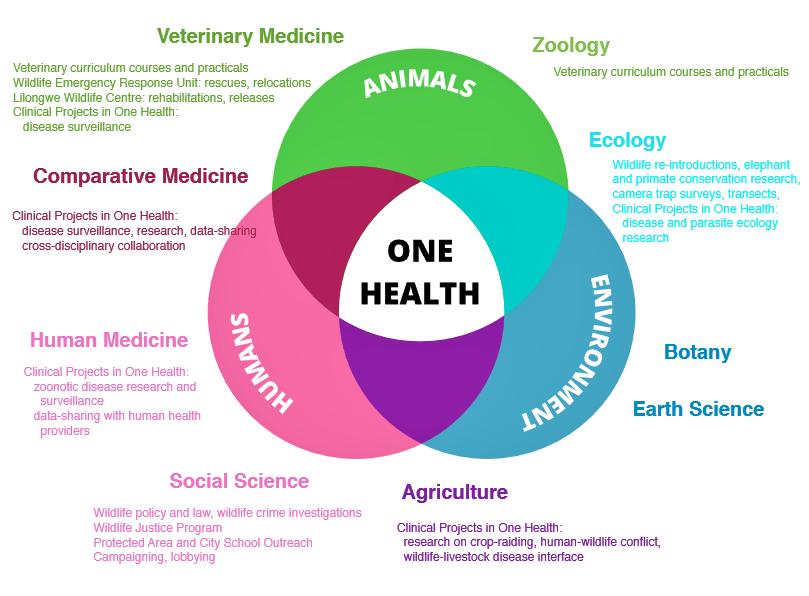What is One Health?

Pandemics are a greater threat today than ever before.
Novel pathogens are on the rise.
More and more diseases are emerging that have never been observed in humans before. These outbreaks are extremely difficult to contain - just look at COVID-19.
The driving force behind this trend: animal diseases.
70% of novel pathogens are transmitted to humans from animals. Destructive human activities force wildlife into human spaces and increase the likelihood of zoonotic transmission.
Zoonotic pathogens have proliferated because of:
Deforestation
Climate change
Exploitation
As humans continue to destroy forests around the world, animals are losing their habitats and taking refuge in our villages and cities.
Insects like mosquitoes, ticks, and flies carry many dangerous diseases, and survive best in warm climates. Thus, climate change will bring these diseases to new regions where weather conditions were previously not suitable, exposing new populations.
Exploitation of natural resources in mines, farms, and logging places human workers in close contact with nature. They may be forced to work in wildlife habitats and subsist off of ‘bushmeat’, then spread zoonotic pathogens to their families back home.

The solution: One Health.
One Health is an approach to epidemiology that considers human health, animal health, and environmental health to be fundamentally connected.
Take deforestation for instance:
Protecting forests from logging ➜ Fewer animals in human spaces ➜ Less zoonotic disease transmission
Environmental health ➜ Animal health ➜ Human health
What does One Health look like?
Cross-disciplinary collaboration across human medicine, veterinary medicine, and environmental science
Biosurveillance: Monitoring animal pathogens with pandemic potential
Investigating zoonotic risk factors like urbanization, domestication, and habitat destruction
Conservation efforts to protect wildlife from human activities
Combating destructive human activities (i.e. mining, logging, farming, pollution, climate change)
Source: Lilongwe Wildlife Trust
One Health recognizes that the biggest problems of our generation - climate change, emerging infectious diseases, environmental destruction - are all fundamentally connected.
In order to solve these broad, interdisciplinary problems, we need broad, interdisciplinary solutions.
How will you contribute to the One Health movement?








